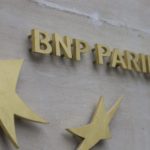Yesterday’s trade (in GMT terms) saw GBP/USD within the range of 1.3281-1.3374. The pair closed at 1.3324, shedding 0.24% compared to Tuesdays close. It has been the 166th drop in the past 308 trading days. The major pair has trimmed its advance to 0.69% so far during the current month, after losing 0.59% of its value in July.
At 6:42 GMT today GBP/USD was edging down 0.28% on the day to trade at 1.3287. The pair touched a daily high at 1.3347 during the mid phase of the Asian trading session, undershooting the range resistance level (R3), and a daily low at 1.3296 during late Asian trade.
On Thursday GBP/USD trading may be influenced by the following macroeconomic reports and other events as listed below.
Fundamentals
United Kingdom
Bank of England policy decision
At 11:00 GMT Bank of England is to announce its decision on monetary policy. The benchmark interest rate (repo rate) will probably be reduced by 25 basis points to a new record low level of 0.25%, according to market expectations. If so, this would be the Banks first move on borrowing costs since its March 5th 2009 policy meeting. The repo rate applies to open market operations of the central bank with other banks, building societies, securities firms etc.
At the same time, the pace of BoE’s monetary stimulus will probably be left without change at GBP 375 billion. The asset-purchasing program, financed by the issuance of central bank reserves was initiated on March 5th 2009, while the scale of this program was increased by GBP 50 billion to the current GBP 375 billion on July 5th 2012.
The minutes from the Banks policy meeting may reveal that 1 member of the Monetary Policy Committee voted in favor of keeping borrowing costs and the stock of purchased assets intact, while 8 members supported a rate cut.
Last month the majority of Committee members expected that monetary policy might be loosened at the meeting in August, the BoE Statement showed.
According to extracts from the Monetary Policy Statement, released in July: ”The precise size and nature of any stimulatory measures will be determined during the August forecast and Inflation Report round.”
”Official data on economic activity covering the period since the referendum are not yet available. However, there are preliminary signs that the result has affected sentiment among households and companies, with sharp falls in some measures of business and consumer confidence.”
”The MPC is committed to taking whatever action is needed to support growth and to return inflation to the target over an appropriate horizon. To that end, most members of the Committee expect monetary policy to be loosened in August. The Committee discussed various easing options and combinations thereof. The exact extent of any additional stimulus measures will be based on the Committee’s updated forecast, and their composition will take account of any interactions with the financial system.”
Following the EU membership referendum, Bank of England Governor, Mark Carney, also hinted at additional stimulus during the summer period.
A rate cut would be a strong bearish signal for the Sterling. The rate decision is to be followed by a press conference with BoE Governor Carney at 11:30 GMT.
United States
Feds Kaplan speech
At 10:15 GMT the Federal Reserve President for Dallas and also a FOMC member, Robert Kaplan, is expected to take a statement. Any remarks made in regard to inflation, growth, or monetary policy would certainly bolster USD volatility.
Initial, Continuing Jobless Claims
The number of people in the United States, who filed for unemployment assistance for the first time during the business week ended on July 29th, probably fell to 265 000, according to market consensus, from 266 000 in the preceding week. The latter has been the highest number of claims since the business week ended on July 1st, when a revised up 270 000 claims were reported.
The 4-week moving average, an indicator lacking seasonal effects, was 256 500, marking a drop by 1 000 compared to the preceding weeks revised up average.
The business week, which ended on July 22nd, has been the 73rd consecutive week, when jobless claims stood below the 300 000 threshold, which suggested a healthy labor market. It has been the longest streak in 43 years.
Initial jobless claims number is a short-term indicator, reflecting lay-offs in the country. In case the number of claims met expectations or decreased further, this would have a moderate bullish effect on the US dollar.
The number of continuing jobless claims probably fell to the seasonally adjusted 2 130 000 during the business week ended on July 22nd, according to the median forecast by experts, from 2 139 000 in the preceding week. The latter represented an increase by 7 000 compared to the revised up number of claims reported in the week ended on July 8th. This indicator reflects the actual number of people unemployed and currently receiving unemployment benefits, who filed for unemployment assistance at least two weeks ago.
The US Department of Labor is to release the weekly report at 12:30 GMT.
Factory Orders
The total value of factory orders in the United States probably shrank 1.8% in June compared to May, according to the median estimate by experts, following an unrevised 1.0% drop in the preceding month. If market expectations were met, this would be the largest monthly contraction since December 2015, when the value of factory orders was reported to have shrunk 2.9%. In May, orders for non-defense capital goods excluding aircraft, a gauge of business confidence and spending plans, shrank at a monthly 0.4%, following a 0.7% decrease in April.
Excluding the sector of transportation, factory orders went up 0.1% in May from a month ago, while extending gains in March and April.
The general index reflects the total value of new purchase orders, placed at manufacturers for durable and non-durable goods, and can provide insight into inflation and growth in the US sector of manufacturing. In case the general index of new orders decreased at a faster-than-anticipated rate, this would trigger a moderate bearish impulse for the US dollar, as it implies future growth deceleration. The US Census Bureau will release the official data at 14:00 GMT.
Bond Yield Spread
The yield on UK 2-year government bonds went as high as 0.215% on August 3rd, after which it closed at 0.204% to add 2.3 basis points (0.023 percentage point) compared to August 2nd.
Meanwhile, the yield on US 2-year government bonds climbed as high as 0.691% on August 3rd, after which it fell to 0.671% at the close to lose 1.6 basis points (0.016 percentage point) compared to August 2nd.
The spread between 2-year US and 2-year UK bond yields, which reflects the flow of funds in a short term, narrowed to 0.467% on August 3rd from 0.506% on August 2nd. The August 3rd yield spread has been the lowest one since July 7th, when the difference was 0.448%.
Daily, Weekly and Monthly Pivot Levels
By employing the Camarilla calculation method, the daily levels of importance for GBP/USD are presented as follows:
R1 – 1.3333
R2 – 1.3341
R3 (Range Resistance – Sell) – 1.3350
R4 (Long Breakout) – 1.3375
R5 (Breakout Target 1) – 1.3405
R6 (Breakout Target 2) – 1.3417
S1 – 1.3315
S2 – 1.3307
S3 (Range Support – Buy) – 1.3298
S4 (Short Breakout) – 1.3273
S5 (Breakout Target 1) – 1.3243
S6 (Breakout Target 2) – 1.3231
By using the traditional method of calculation, the weekly levels of importance for GBP/USD are presented as follows:
Central Pivot Point – 1.3198
R1 – 1.3339
R2 – 1.3444
R3 – 1.3585
R4 – 1.3726
S1 – 1.3093
S2 – 1.2952
S3 – 1.2847
S4 – 1.2742
In monthly terms, for GBP/USD we have the following pivots:
Central Pivot Point – 1.3171
R1 – 1.3546
R2 – 1.3858
R3 – 1.4233
R4 – 1.4608
S1 – 1.2859
S2 – 1.2484
S3 – 1.2172
S4 – 1.1860





